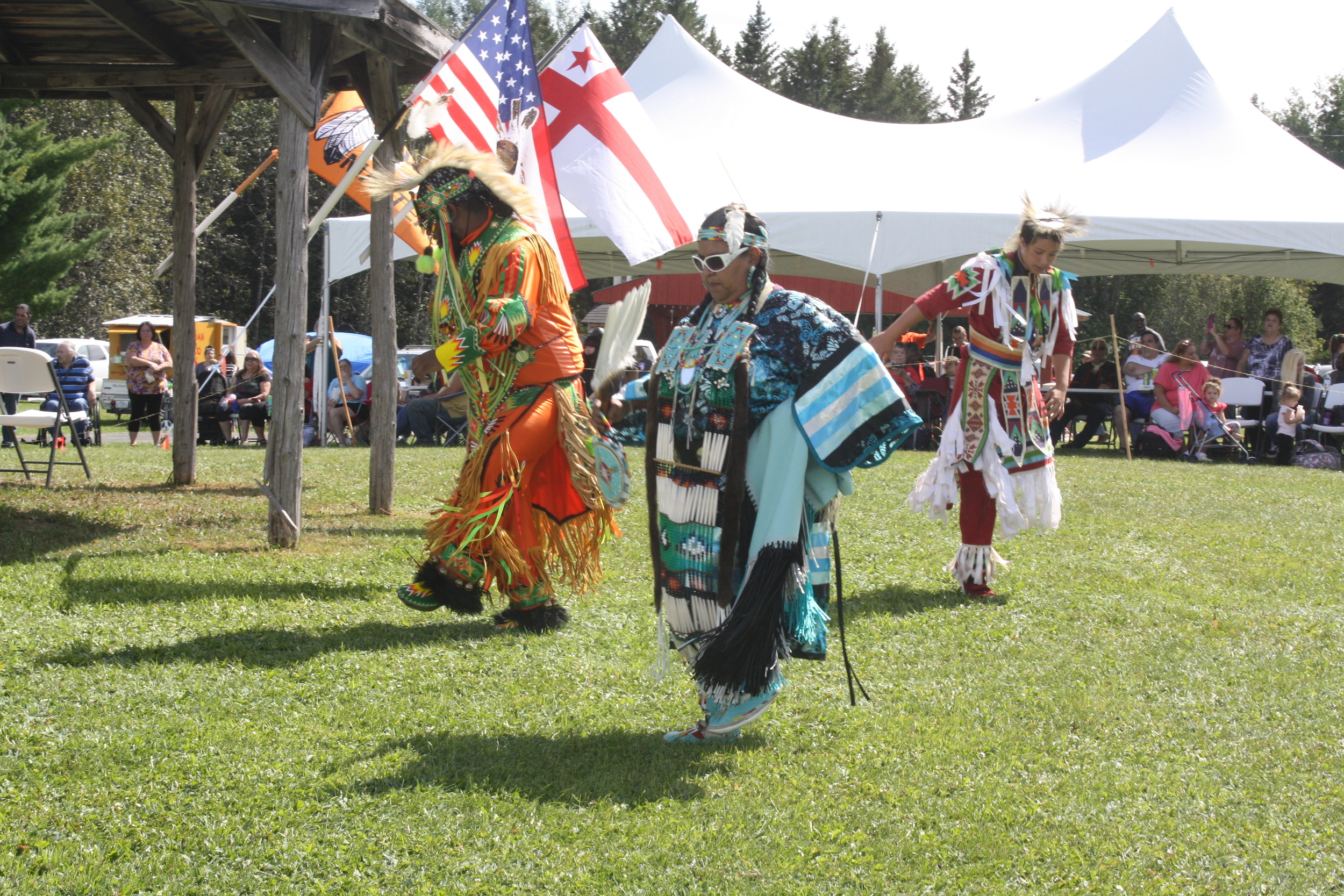
CARIBOU, Maine — When Roberta Silliboy of Houlton decided to attend the Aroostook Band of Micmacs’ annual Mawiomi for the first time on Saturday, she wore a traditional dress adorned with 6,509 orange feathers.
Each of those feathers represented a Native American child lost to the residential schools in Canada and the United States, which have become notorious for their traumatic and violent means of trying to assimilate children into non-Native ways of life.
Silliboy was inspired to create the feathered skirt after hearing stories of unmarked graves of Native children that have been found at former residential school sites in Canada.
“For the majority of us, it’s hard not to know someone who has been impacted by the residential schools,” said Silliboy, who explained that many of her friends have relatives who survived the schools. “These are parents, grandparents, aunts and uncles taken from us.”
Even with the surge in the delta variant of COVID-19, hundreds of people came out to Spruce Haven in Caribou for the outdoor Micmac Mawiomi celebrations, which were canceled in 2020 due to pandemic concerns. Like Silliboy, those who attended took part in cultural traditions that honored past and future Micmac generations.
Though ceremonies during Mawiomi, whose English translation is “gathering,” honors various members of the Micmac community, including veterans, prisoners of war and elders, the major theme of this year’s powwow was “Every Child Matters.” One of the many flags presented during the opening ceremony featured that phrase written against an orange background in honor of the residential school children.
The flag not only honors the lost children but also survivors and the generations that have carried on their cultural traditions, Micmac cultural director John Dennis said.
“When I teach Mikmaq children their language and they ask me, ‘Why are we learning this?’ I tell them, ‘I want to give you back something that was taken from your elders. I want to give you back a little of who you are,'” Dennis said.
Throughout the weekend, hundreds of people both from inside and outside the Micmac community gathered at Spruce Haven to celebrate that culture with performances from drumming groups and dancers dressed in traditional regalia. Nearly 15 food and craft vendors were present, including those who sold handmade jewelry and baskets.
Those attending Mawiomi were invited to dance alongside the head dancers and many children wore the traditional regalia of their relatives.

Beth Diamond of Caribou attends the Micmac Mawiomi of Tribes Saturday with her great-niece Rory Labobe, 6. (Melissa Lizotte | The Aroostook Republican & News)
Prior to Mawiomi, Beth Diamond of Caribou sewed regalia for 15 children in her family, including 6-year-old great-niece Rory Labobe, who wore a purple flowered dress and excitedly followed Diamond as they waited for opening ceremonies to begin.
Diamond has attended Mawiomi every year since it began in 1994. She considers the gathering an important way to connect with family from Aroostook, Canada and beyond and to teach her youngest relatives about cultural values.
“I want them to learn as much as they can about our traditions,” Diamond said.
While keeping losses from the past in mind, the Mawiomi also celebrated the traditions that will continue to stay alive through Micmac youth, Dennis said.
“Culture is not just the baskets and beadwork. It’s the language, the humor, the food, the songs, the prayers. It’s the children running around and the elders sharing their stories,” Dennis said. “It’s the people who want to know who they are.”







